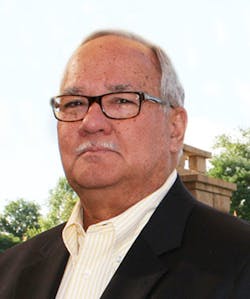Remote, but resolute: Mich. firm builds local workforce
One of the first things I heard in the plastics industry was how difficult it is to find skilled employees. That was in 1989, but if you fast-forward 26 years the same lament is heard even more frequently.
From time to time, we run across companies making an extra effort to solve the problem.
Jere Irwin, founder of Irwin Research & Development Inc. in Yakima, Wash., told us how in 1980 he established a school inside his company called Irwin Technical College to train employees in engineering and machining skills. He does not require them to stay with the company when the training is finished.
There is an interesting pilot program started recently in Colorado called Business and Schools in Collaboration (BASIC) that coordinates the efforts of industry associations, chambers of commerce and other business organizations to recruit certified centers of work-based learning in Colorado manufacturing companies. BASIC, with help from the industries, is also developing a curriculum that complements theory taught in classrooms.
But Extreme Tool & Engineering Inc., a small mold-maker and injection molder in a very remote corner of Michigan's Upper Peninsula, is a great example of a company tackling the problem head-on.
Extreme's remote location — it is more than a 10-hour drive to Detroit — and 200-inch average annual snowfall make recruiting from the outside difficult. Developing a local talent pool is critical.
"Historically, our area was primarily a mining and logging community and years ago it was a thriving, successful area," says Mike Zacharias, president of Extreme in Wakefield, Mich. "As our community has disappeared around us, one of the most disappointing things I have seen is people I care about being forced to send a message to their kids that if they ever wanted to be a contributing member of our society, they had to leave the area.
"So selfishly some of my business goals are based on doing what we need to do to support our business. But secondarily — and just as important — is to provide opportunities for kids who want to stay here."
Zacharias, who owns the 90-employee business, has a full-time director of training and continuous improvement. He is a skilled journeyman mold-maker whom Zacharias describes as a CAD guru with good engineering skills. "We found if you basically wait for your senior managers to have time on their hands to mentor and train other people, it is not going to happen," Zacharias says.
When students return to the local high school this month, a functioning injection molding machine will be waiting in the shop classroom. It is a machine Extreme recently took out of service.
Donating the money and equipment is just part of Extreme's commitment. Employees are training the shop teacher and will help teach some molding classes. "We are lending our expertise to train the trainer and some of our guys will actually perform some of the classroom training," Zacharias says. They will also help in building a mold to be used in the classroom.
"What I see happening is the molding machine being part of the whole process of creation for the students, from design to mold-making to molding to holding a part in their hands," Zacharias says.
An example is the students molding a keychain with the high school mascot, then selling the keychain at school events. "At that point, it is not a trinket that was ordered from China but something that was manufactured in the community. There is value at a creation level, at the community level and in developing a sense of pride in manufacturing."
Extreme, which started as a mold-making business in 1998 and added custom molding later, is one of the biggest employers in Wakefield. It has eight molding machines ranging from 28 to 500 tons of clamping force.
Extreme experiences about 5 percent employee turnover a year, and now the children of some early employees are working there.
"We partner with high schools and technical colleges, but I think it is important that you take responsibility yourself for whether people are or are not ready to be productive employees," Zacharias says.
Extreme certainly invests heavily in developing the talent pool it needs to grow, and providing a molding machine and expertise to run it is a novel idea that others could emulate. It goes far beyond plant tours and donations in giving students an understanding of plastics manufacturing and the skills they will need to be successful in most any manufacturing job.
There are hundreds of functioning molding machines taken out of service every year that could have a big impact on the development of a stronger manufacturing workforce if they found their way into programs that excite students. But, as Zacharias demonstrates, it is not enough to back up a truck to the local high school and unload a machine.
Do you know about other companies that have innovative ideas to develop the manufacturing talent pool? Send an email to [email protected] and occasionally we will highlight their efforts and help spread good ideas.
Ron Shinn, editor
About the Author
Ron Shinn
Editor
Editor Ron Shinn is a co-founder of Plastics Machinery & Manufacturing and has been covering the plastics industry for more than 35 years. He leads the editorial team, directs coverage and sets the editorial calendar. He also writes features, including the Talking Points column and On the Factory Floor, and covers recycling and sustainability for PMM and Plastics Recycling.


